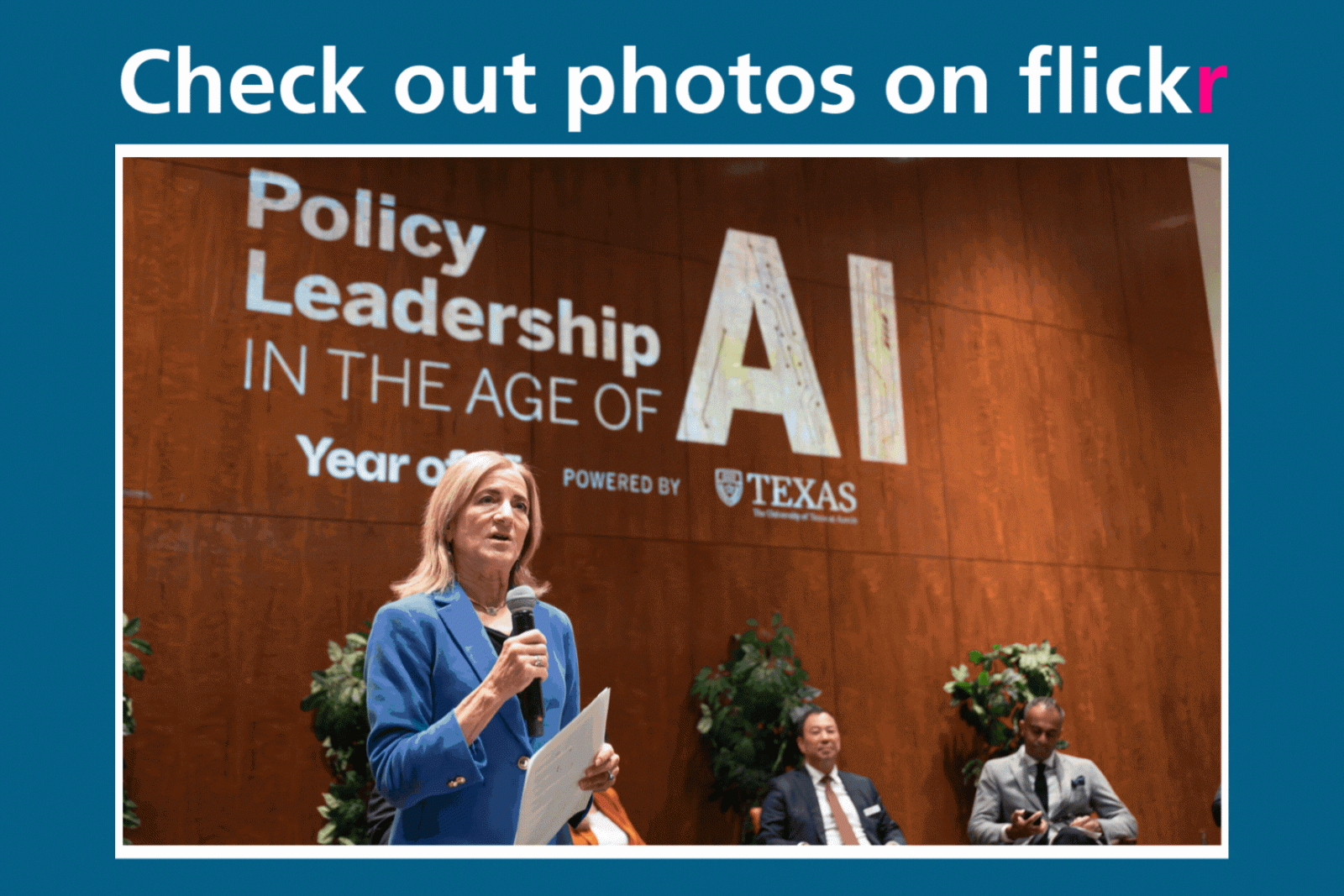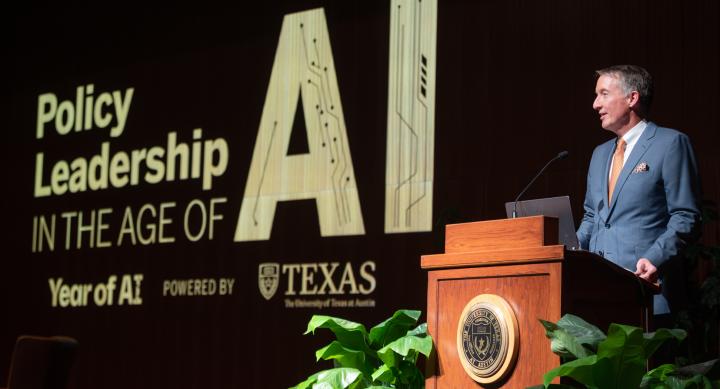
The University of Texas at Austin hosted a signature “Year of AI” symposium on “Policy Leadership in the Age of AI” at the LBJ School of Public Affairs on Tuesday, October 1st. The symposium featured over 25 speakers for a day of dialogue and innovation on artificial intelligence, with topics ranging from healthcare and energy to education and national security. The event was highlighted by a keynote address from Dr. Alondra Nelson, one of the TIME 100 Most Influential People in AI.
Overarching themes included the need for responsible stewardship in AI's application and respect for the ethical components of incorporating AI into various industries for innovation.
The event began with The Future of Precision Healthcare: Perspectives on Health AI Policy, where panelists shared their insights on key policy questions surrounding AI in healthcare.
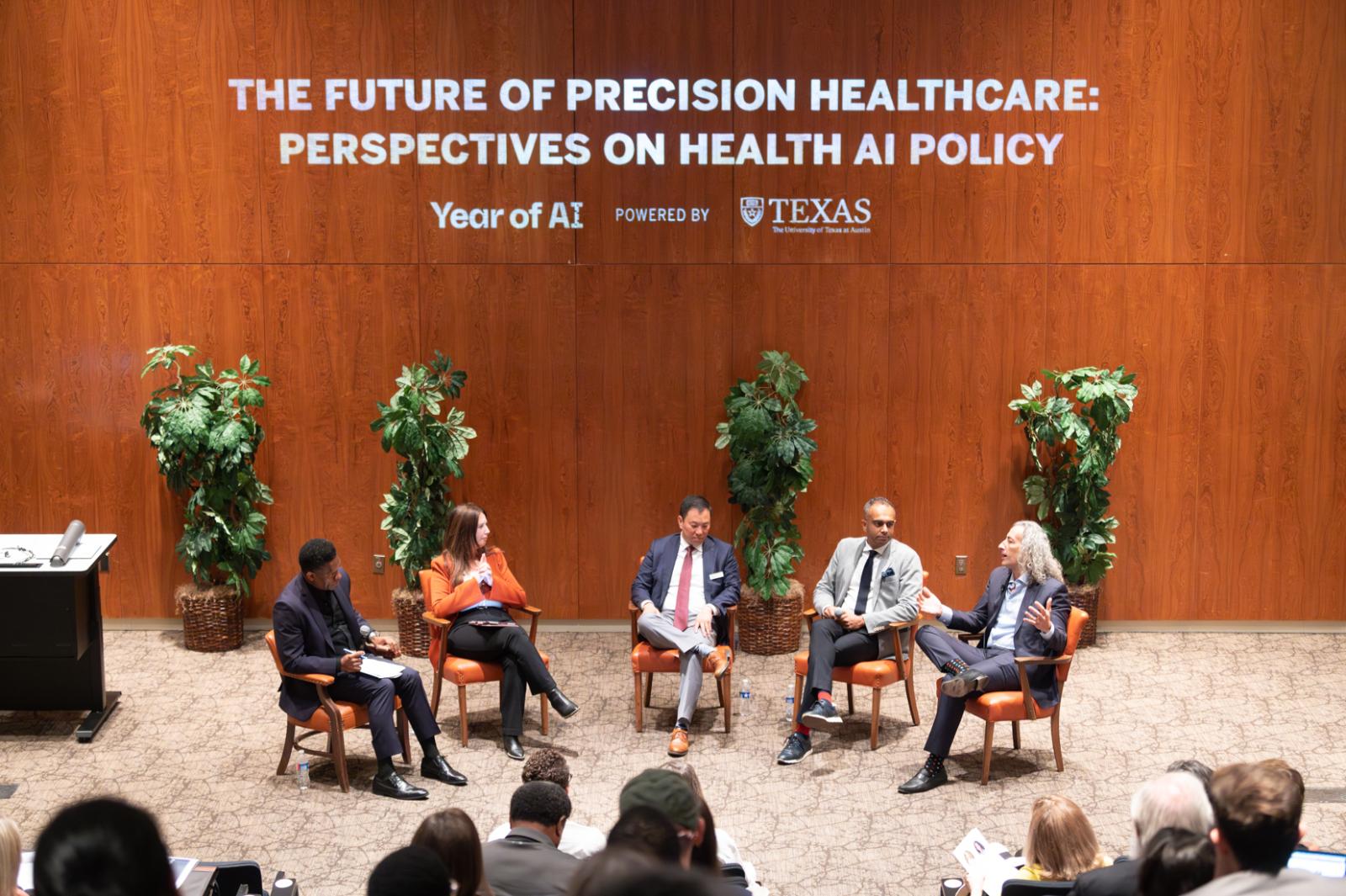
Moderated by Craig Watkins, Executive Director of the IC² Institute at UT Austin, the panel included a range of industry experts such as Dr. Claudia Lucchinetti, Dean of Dell Medical School; Dr. Patrick Lee, President & CEO of Central Health; Dr. Prakash Jayakumar from Dell Medical School; and Dave DeCaprio, Chief Technology Officer and Co-Founder of MBUE.
The discussion focused on accuracy, transparency and equity as AI becomes increasingly integrated into healthcare and the patient experience. A key point of the conversation was how AI can augment the patient experience in a clear and transparent manner. Accessibility was a central focus of discussion to ensure that precision healthcare remained equitable across demographics.
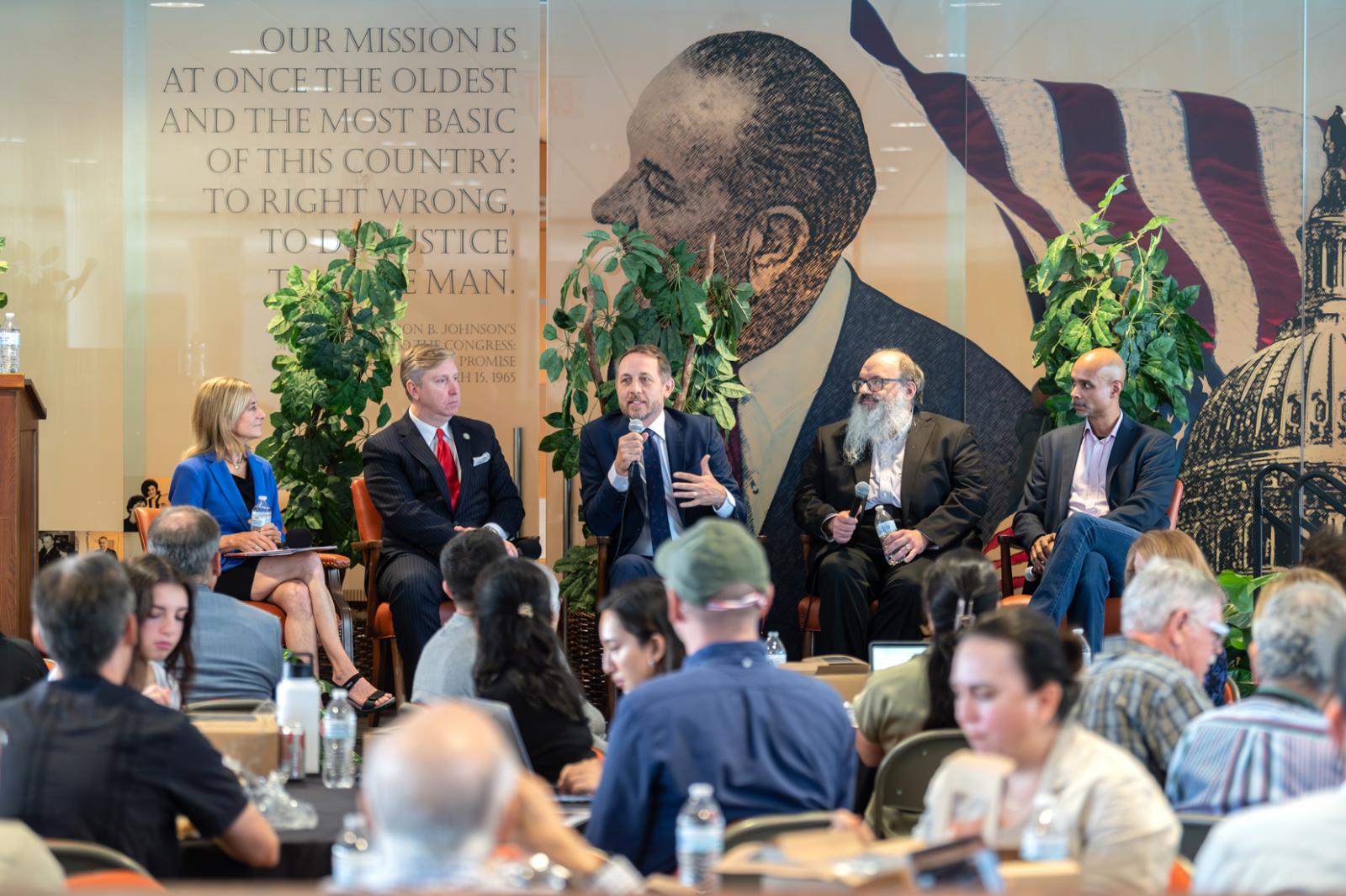
The next topic, AI and the Future of Work, was led by Sherri Greenberg, Assistant Dean for State and Local Government at the LBJ School.
The panel featured experts from multiple sectors, including Senator Tan Parker (R–Flower Mound, Co-Chair of the Artificial Intelligence Advisory Council), Andy Brown, Travis County Judge; Ken Fleischmann, Professor at the School of Information; and Mike Hollinger, Chief Architect for Applied AI and Solutions at IBM Sustainability Software, who joined Greenberg for this luncheon.
“It is hard to imagine a job that isn’t going to be touched by AI,” said Fleischmann. “This is an opportunity to innovate responsibly.”
The panelists emphasized that AI should not be feared but urged caution, thoughtful use, and creativity in its application.
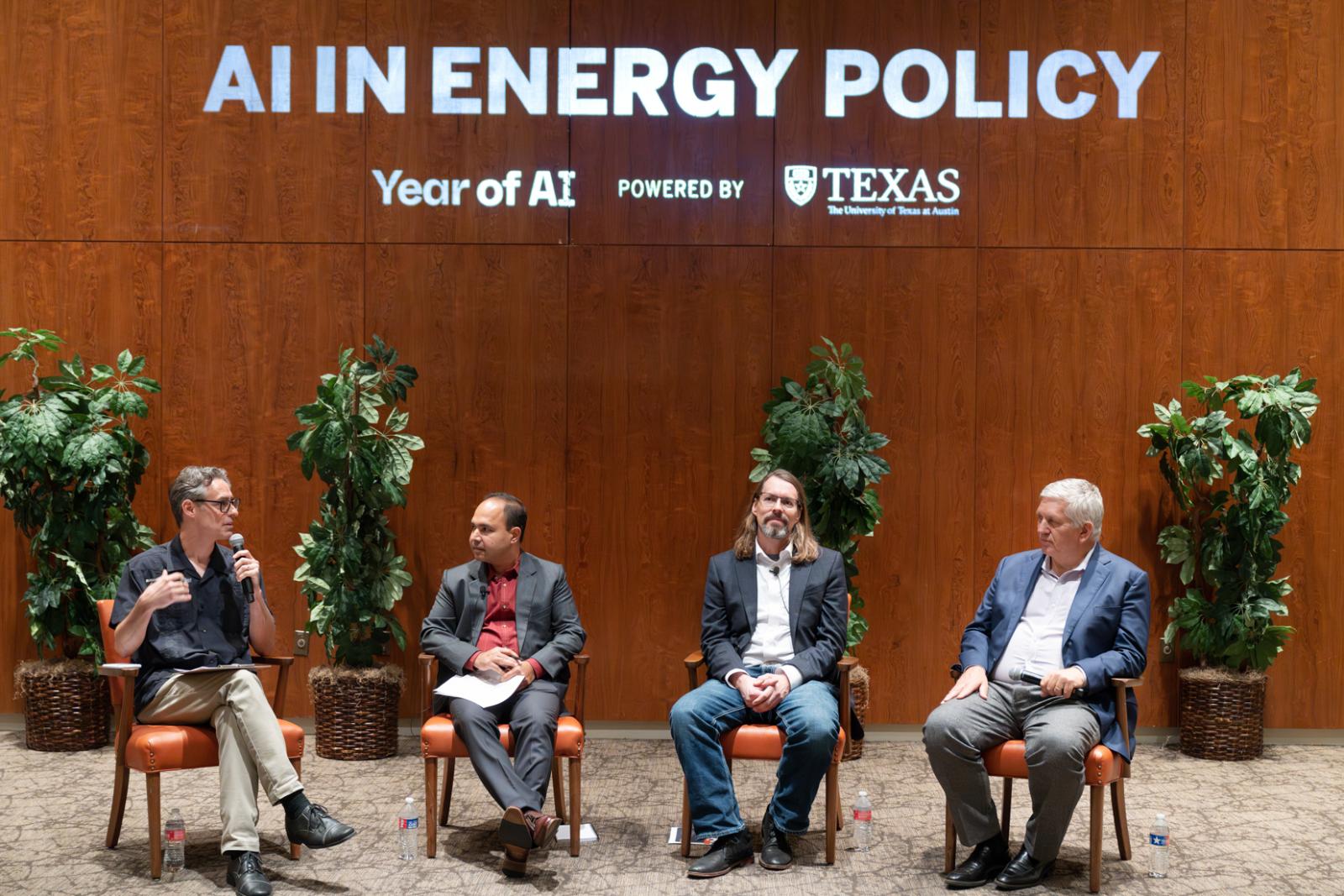
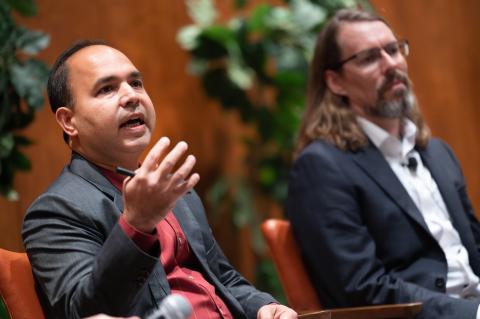
AI in Energy Policy discussed the challenges and opportunities for AI in the energy industry, focusing on how these technologies can be leveraged for the broader social good. Led by Marc Airhardt, host of “AI for the Rest of Us” and professor in the College of Natural Sciences, the discussion addressed the rising environmental costs of AI.
Panelists included LBJ School professor Varun Rai, Cockrell School of Engineering and Jackson School of Geosciences professor Michael Pyrcz and Robert A. James, attorney and co-leader of Pillsbury’s Energy and Infrastructure Projects.
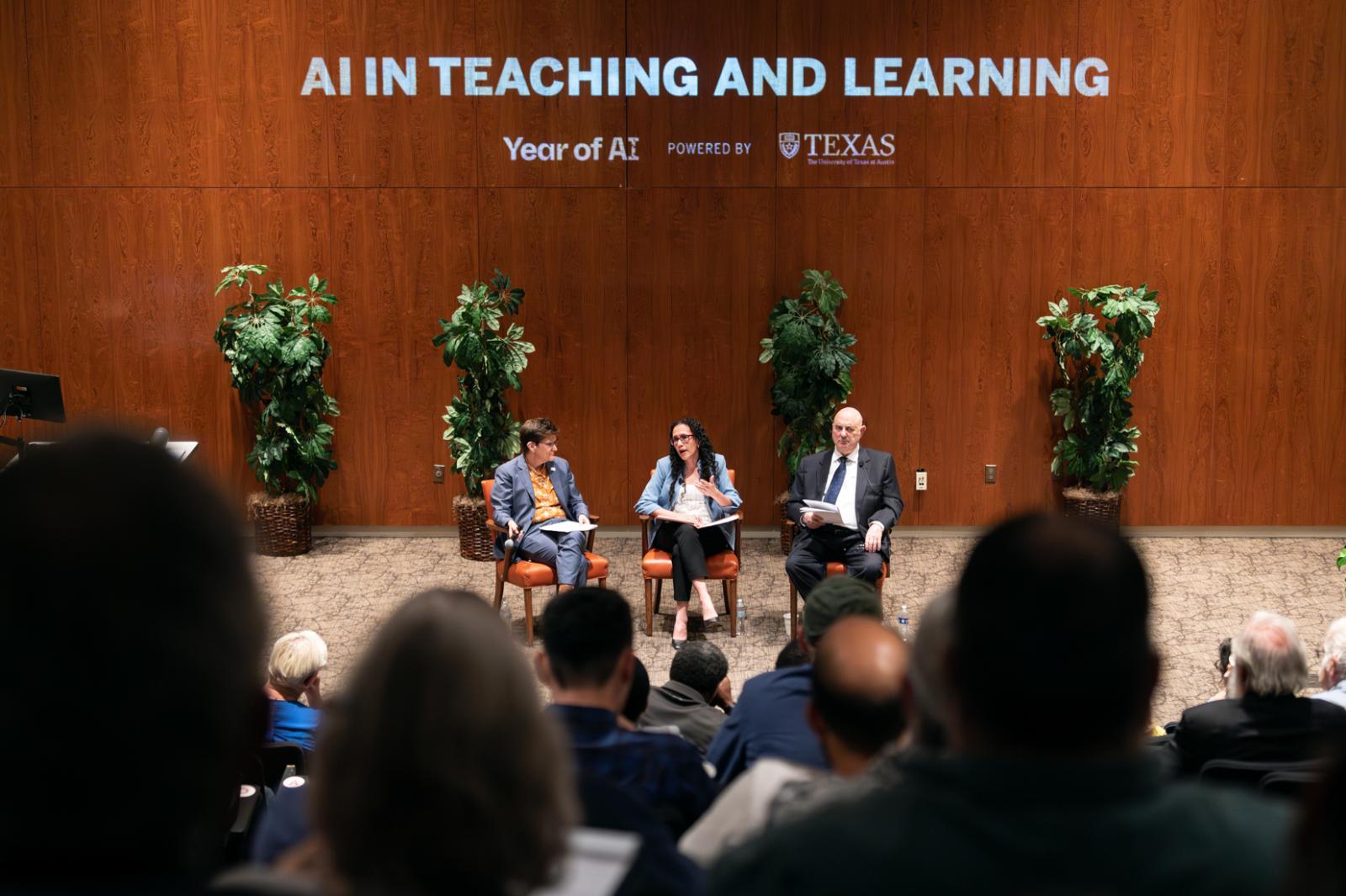
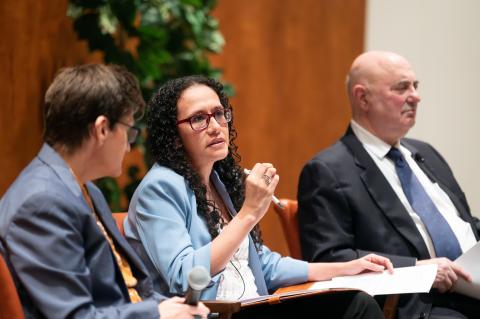
Julie Schell, Assistant Vice Provost of Academic Technology at UT Austin, moderated the panel on AI in Teaching and Learning, where panelists discussed how educators and institutions can use AI to enhance educational outcomes.
The panel shared insights on tools like Turnitin and how AI had been used in education before the advent of generative AI platforms. LBJ School professor David Eaton and Michelle Singh, Assistant Commissioner of Digital Learning at the Texas Higher Education Coordinating Board, provided their perspectives.
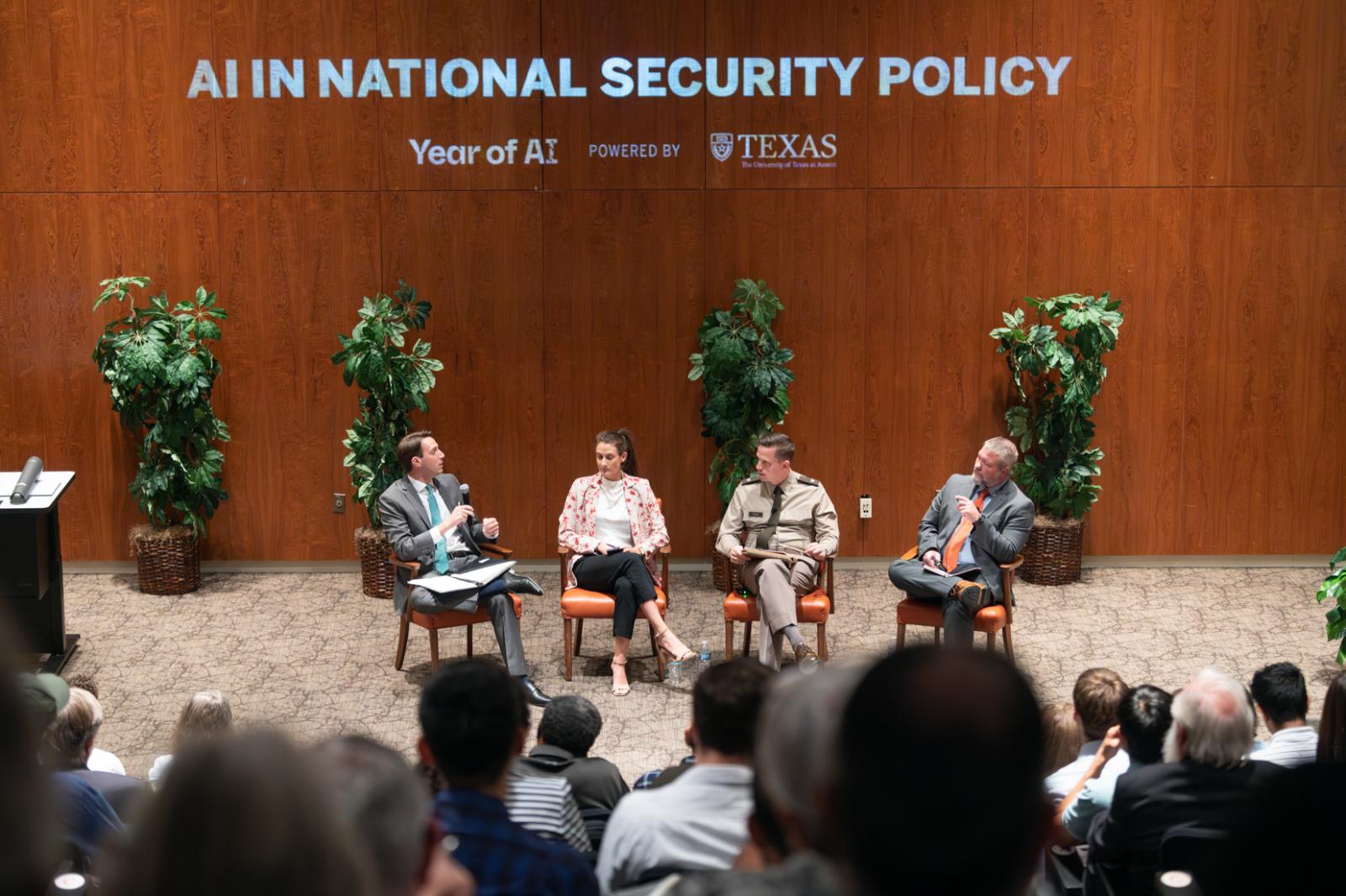
Adam Klein, Director of the Strauss Center for International Security and Law, moderated AI in National Security Policy, where panelists discussed AI’s implications for national security, including its potential uses in intelligence, counterterrorism and irregular warfare. They also explored the ethical considerations surrounding AI in armed conflict.
Joining Klein were LBJ School professor Michael Dennis, Col. Chris Ford, General Counsel for Army Futures Command and Morgan Hitzig, Investor at Venrock.
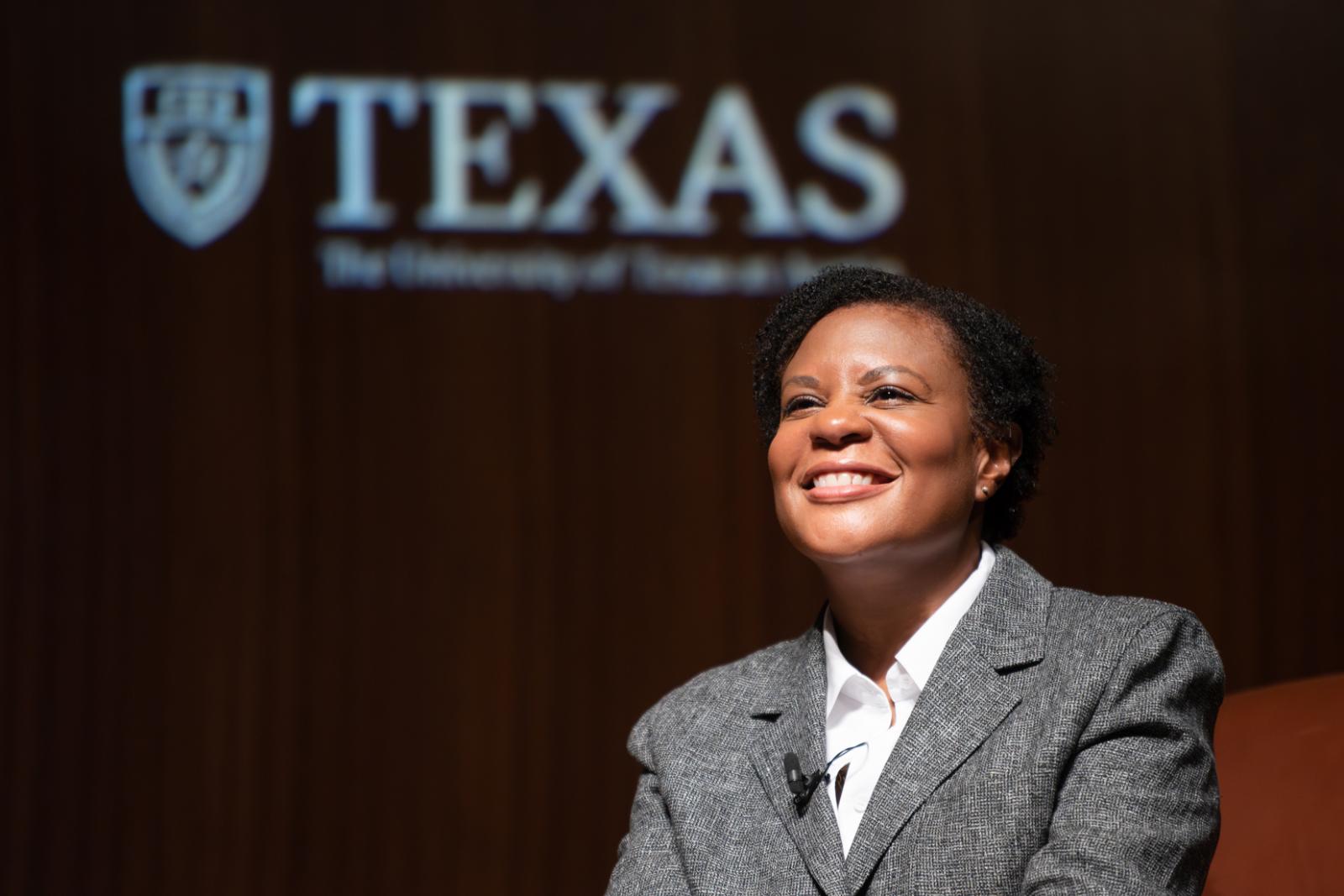
The symposium culminated with a keynote address by Dr. Alondra Nelson on AI in Policymaking. Nelson discussed how AI is reshaping the world and emphasized the importance of implementing best practices to ensure long-term economic and national security.
Following her presentation, Nelson participated in a fireside chat with Lucchinetti, where they explored the intersection of AI and public health.
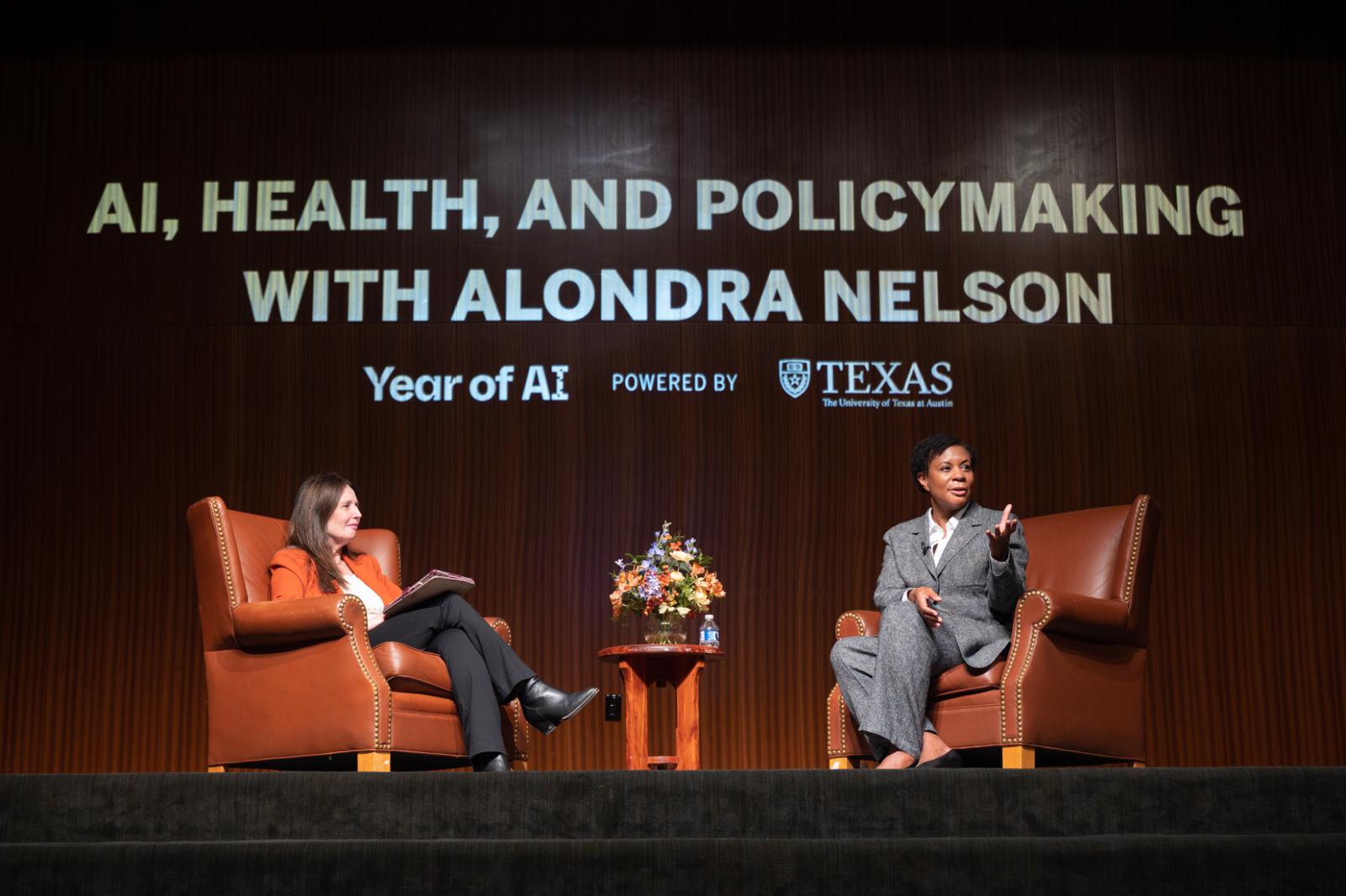
The symposium encapsulated AI's growing influence across multiple industries and the implications of its innovation. Speakers throughout the day remained optimistic about AI’s potential while advocating for paced implementation and caution as AI continues to expand in society.
Policy Leadership in the Age of AI Photo Gallery
